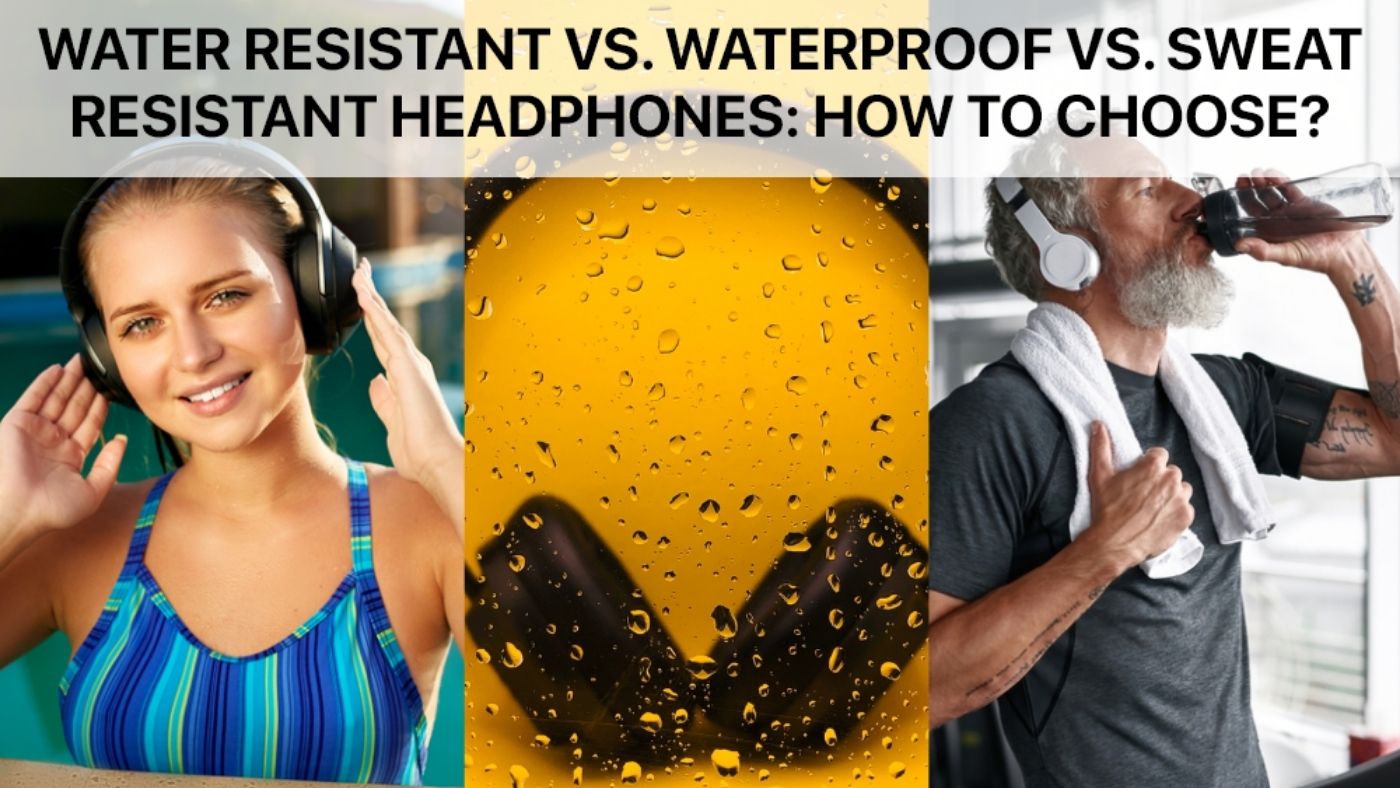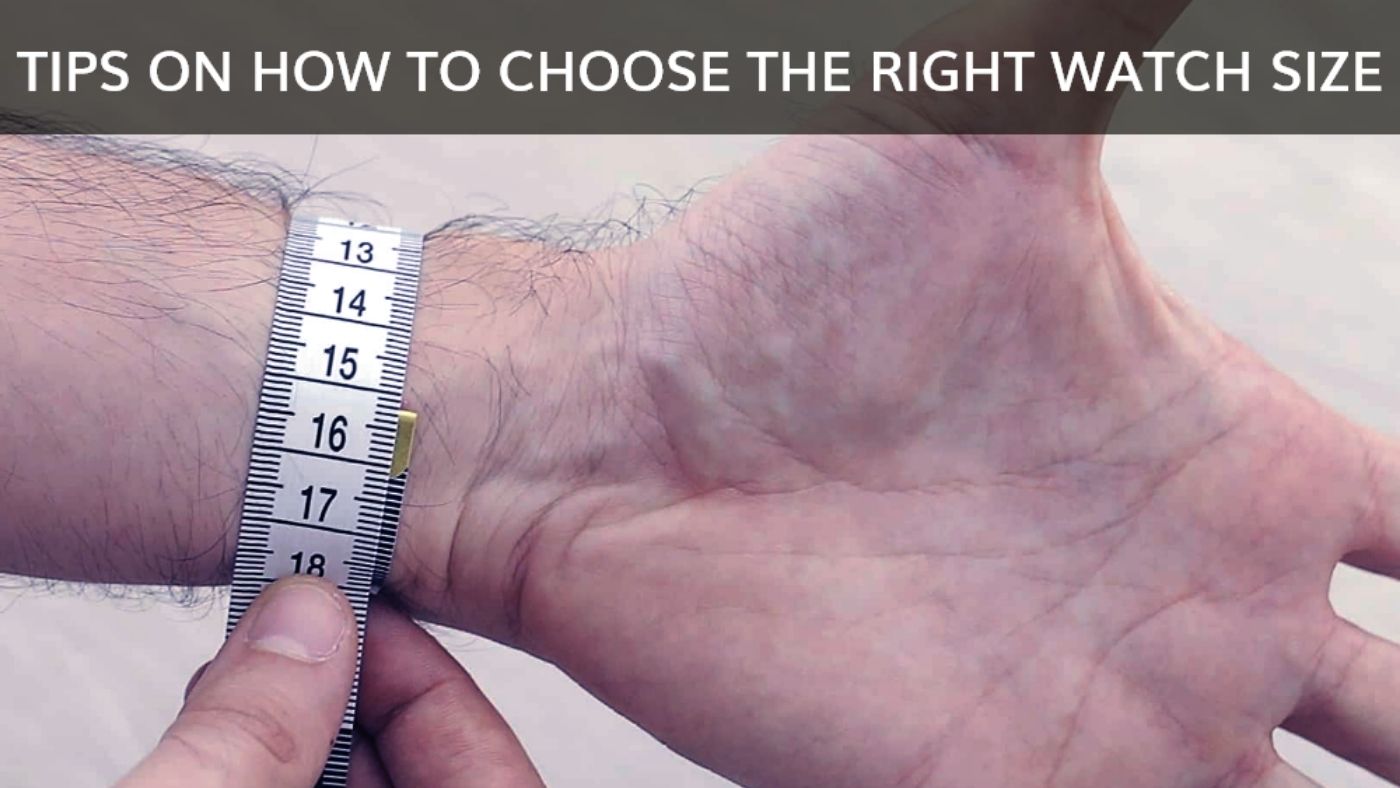عند دخولك أي متجر إلكترونيات، ستجد وفرة من سماعات الرأس، كل منها مصنف كمقاومة للماء أو مقاومة للعرق. مع تعدد الخيارات المتاحة، قد يصعب عليك تحديد سماعة الرأس المناسبة لك.
في منشور المدونة هذا، سنقوم بتفصيل الاختلافات بين سماعات الرأس المقاومة للماء والمقاومة للماء والمقاومة للعرق وسنساعدك في تحديد المجموعة الأفضل لاحتياجاتك.
ما هو "مقاوم للماء"؟

سماعات الرأس المقاومة للماء مصممة لتحمل الرطوبة والتعرق. وهي مثالية للاستخدام أثناء أنشطة مثل الجري وركوب الدراجات والتمرين في صالة الألعاب الرياضية. مع أنها غير مخصصة للغمر في الماء، إلا أنها تتحمل القليل من العرق والمطر دون أي تأثر.
تتوفر سماعات الرأس المقاومة للماء بتصاميم متنوعة، من سماعات الأذن إلى السماعات التي تُلبس على الأذن. يتميز بعضها باستجابة جهير مُحسّنة لتجربة استماع غامرة، بينما يتميز البعض الآخر بتقنية إلغاء الضوضاء التي تمنع أي تشتيت غير مرغوب فيه.
سواء كنت تبحث عن زوج سماعات الرأس المثالي لتمرينك القادم أو كنت تريد فقط القليل من راحة البال الإضافية في الأيام الممطرة، فإن سماعات الرأس المقاومة للماء تستحق النظر فيها.
ما هو "مضاد للماء"؟

صُممت سماعات الرأس المقاومة للماء للاستخدام في الماء أو بالقرب منه. وعادةً ما تكون مصنوعة من مواد مقاومة للماء، مثل المطاط أو السيليكون أو البلاستيك. يمكن غمر سماعات الرأس المقاومة للماء في الماء وستعمل بكفاءة.
إنها مثالية لأنشطة مثل السباحة وركوب الأمواج والتجديف وغيرها. بعض سماعات الرأس المقاومة للماء مصممة للاستخدام تحت الماء. تستخدم هذه السماعات تقنية التوصيل العظمي لنقل الموجات الصوتية عبر عظام الجمجمة إلى الأذن الداخلية. هذا يسمح لك بسماع الموسيقى أو أي صوت آخر حتى عند الغمر في الماء.
سماعات الرأس المقاومة للماء خيار رائع لمن يرغب بالاستمتاع بالموسيقى أو غيرها من الصوتيات دون القلق من بلل سماعات الرأس. سواء كنت تسبح في المسبح أو تجدف وسط المنحدرات، ستتيح لك سماعات الرأس المقاومة للماء الاستماع إلى موسيقاك المفضلة مهما كانت الظروف.
ما هو "مقاوم للعرق"؟

سماعات الرأس المقاومة للتعرق مصممة لتحمل التعرق والرطوبة. يستخدمها الرياضيون بكثرة أثناء التدريبات، وكذلك من يعيشون في مناخات حارة ورطبة. مع أن جميع سماعات الرأس قد تتضرر من العرق، إلا أن بعض الطرز أكثر قدرة على تحمله من غيرها.
تتميز سماعات الرأس المقاومة للتعرق عادةً بهيكل مقاوم للماء، مع وصلات محكمة الغلق وأجزاء معدنية مكشوفة مُعالجة لمقاومة التآكل. بالإضافة إلى ذلك، غالبًا ما تحتوي على طبقات أو مواد خاصة تساعد على امتصاص الرطوبة.
ونتيجة لذلك، يمكن لسماعات الرأس المقاومة للعرق أن توفر عمرًا أطول وأداءً محسنًا في البيئات الصعبة.
مقاوم للعوامل الجوية مقابل مقاوم للماء مقابل مقاوم للعرق: ما الفرق؟

يعرف معظم الناس مصطلحي "مقاومة للعوامل الجوية" و"مقاومة للماء"، ولكن عند الحديث عن سماعات الرأس، غالبًا ما يختلط الأمر حول الفرق بينهما. لتوضيح الأمر، صُممت سماعات الرأس المقاومة للعوامل الجوية لتحمل عوامل الطقس، ولكنها ليست بالضرورة مصممة للاستخدام في الماء.
من ناحية أخرى، صُممت سماعات الرأس المقاومة للماء للاستخدام في الماء، وتتحمل الغمر الكامل. بشكل عام، تُعدّ سماعات الرأس المقاومة للماء خيارًا أفضل لأنشطة مثل السباحة والتجديف، بينما تُعدّ سماعات الرأس المقاومة للعوامل الجوية خيارًا أفضل لأنشطة مثل المشي لمسافات طويلة وركوب الدراجات.
عندما يتعلق الأمر بمقاومة العرق، غالبًا ما يكون هناك لبس أكبر. ويرجع ذلك إلى عدم وجود تعريف موحد لما يُعتبر "مقاومة للعرق". بعض المصنّعين يدّعون ببساطة أن سماعاتهم "مقاومة للعرق"، بينما يُقدّم آخرون تفاصيل أكثر دقة حول كيفية اختبار منتجاتهم.
بشكل عام، صُممت سماعات الرأس المقاومة للتعرق لتحمل التعرّض للعرق وأنواع الرطوبة الأخرى. وهذا يجعلها خيارًا جيدًا لأنشطة مثل الجري والتمرين.
إذًا، ما نوع سماعات الرأس الأنسب لك؟ يعتمد الجواب على احتياجاتك. إذا كنت تبحث عن سماعات رأس مناسبة للتمرين، فربما تكون سماعات الرأس المقاومة للتعرق هي الخيار الأمثل لك.
إذا كنت تبحث عن سماعات رأس يُمكنك استخدامها في المسبح أو خلال أنشطة مائية أخرى، فربما تكون سماعات الرأس المقاومة للماء خيارًا أفضل. وإذا كنت تبحث عن سماعات رأس يُمكنك اصطحابها معك في رحلات المشي لمسافات طويلة أو ركوب الدراجات، فقد تكون سماعات الرأس المقاومة للعوامل الجوية هي الخيار الأمثل لك.
التعليمات:
فيما يلي الأسئلة الأكثر شيوعًا فيما يتعلق بسماعات الرأس المقاومة للماء والمقاومة للماء والمقاومة للعرق:
1: كيف تعرف إذا كانت سماعات الرأس مقاومة للماء أو مضادة للماء؟
أسهل طريقة لمعرفة ما إذا كانت سماعات الرأس مقاومة للماء أم لا هي البحث عن ملصق أو تسمية من الشركة المصنعة. تستخدم العديد من الشركات مصطلحات مختلفة لوصف منتجاتها، لذا من المهم معرفة ما تبحث عنه. على سبيل المثال، قد تستخدم بعض الشركات مصطلح "IPX" متبوعًا برقم. يشير الرقم بعد IPX إلى مستوى الحماية من الماء؛ وكلما ارتفع الرقم، زادت حماية سماعات الرأس. على سبيل المثال، تستطيع سماعات الرأس ذات تصنيف IPX4 تحمل رذاذ الماء من جميع الاتجاهات، بينما يمكن غمر سماعات الرأس ذات تصنيف IPX7 في الماء حتى عمق متر واحد لمدة 30 دقيقة.
إذا لم تجد أي معلومات من الشركة المصنعة، فهناك طريقة أخرى لمعرفة ما إذا كانت سماعات الرأس مقاومة للماء أم لا، وهي التحقق من وجود مادة مانعة للتسرب حول مقبس سماعة الرأس. تساعد هذه المادة على منع دخول الماء إلى المكونات الكهربائية لسماعات الرأس. وأخيرًا، غالبًا ما تحتوي سماعات الرأس المقاومة للماء على بطانة أكثر سمكًا حول أغطية الأذن لتوفير حاجز إضافي ضد الماء.
على الرغم من عدم وجود طريقة أكيدة لتحديد ما إذا كانت سماعات الرأس مقاومة للماء بنسبة 100%، فإن اتباع هذه النصائح من شأنه أن يساعدك في الحصول على فكرة أفضل عن مستوى الحماية ضد أضرار المياه.
2: ما هي فوائد سماعات الأذن المقاومة للماء؟
فيما يلي بعض فوائد سماعات الرأس المقاومة للماء فوق الأذن:
يمكنك ارتدائها أثناء السباحة
صُممت هذه السماعات لتبقى ثابتة في مكانها، حتى أثناء السباحة. كما أنها مقاومة للعرق والماء، ما يتيح لك التركيز على تمرينك دون القلق بشأن سماعاتك.
سماعات الرأس المقاومة للماء فوق الأذن هي خيار رائع لأي شخص يريد الاستمتاع بالسباحة مع الاستمرار في القدرة على الاستماع إلى الموسيقى أو الكتب الصوتية المفضلة لديه.
إنها مثالية للرياضيين
تُعتبر سماعات الرأس فوق الأذن أفضل أنواع سماعات الرأس للرياضيين، وذلك لأنها تُوفر ملاءمةً مُحكمةً تُساعد على تثبيتها في مكانها أثناء الأنشطة الشاقة.
علاوة على ذلك، تتميز سماعات الرأس فوق الأذن براحة أكبر من أنواع سماعات الرأس الأخرى، وتوفر جودة صوت فائقة. ومع ذلك، فإن إحدى أهم مزايا سماعات الرأس فوق الأذن للرياضيين هي مقاومتها للماء.
هذا يعني أنه يمكن ارتداؤها في جميع الظروف الجوية، بما في ذلك أثناء التمارين الرياضية الشاقة أو السباحة. كما تُعد سماعات الرأس المقاومة للماء مثالية للاستماع إلى الموسيقى أثناء الاستحمام. بشكل عام، تُعدّ سماعات الرأس المقاومة للماء فوق الأذن الخيار الأمثل للرياضيين الذين يرغبون في أفضل تجربة استماع ممكنة.
إنها مثالية للأيام الممطرة
سماعات الرأس المقاومة للماء فوق الأذن هي الإكسسوار المثالي للأيام الممطرة. صُممت للحفاظ على جفاف أذنيك وراحتهما أثناء الاستمتاع بموسيقاك المفضلة أو كتابك الصوتي.
سماعات الرأس المقاومة للماء فوق الأذن مثالية أيضًا للتمرين تحت المطر. فهي ثابتة في مكانها ولن تنزلق أو تسقط، حتى مع التعرق. وفي حال هطول أمطار غزيرة، ستحافظ على جفاف رأسك وأذنيك.
إنها مثالية للشاطئ
صُممت هذه السماعات لتحمل التعرض للماء والرمال والشمس، مما يجعلها مثالية للاستخدام على الشاطئ أو حمام السباحة. تتميز السماعات المقاومة للماء عادةً بأغطية أذن محكمة الغلق تمنع دخول الرطوبة، بالإضافة إلى كابلات وموصلات معززة مقاومة للتآكل.
بعض الموديلات توفر ميزات مثل مقاومة الرطوبة والتعرق، مما يجعلها مثالية للاستخدام النشط في الطقس الحار. سواء كنت ترغب بالاستماع إلى الموسيقى أثناء السباحة أو مجرد الاسترخاء على الشاطئ مع أغانيك المفضلة، فإن سماعات الرأس المقاومة للماء فوق الأذن خيار رائع.
يؤمن
أي شخص دخل في بركة ماء دون قصد وهو يرتدي سماعات الرأس، يدرك أهمية ارتداء سماعات رأس مقاومة للماء. فالماء والأجهزة الإلكترونية لا تختلطان، وحتى كمية ضئيلة من الرطوبة قد تُسبب أضرارًا بالغة للمكونات الحساسة.
سماعات الرأس المقاومة للماء فوق الأذن مصممة لتحمل التعرض للماء، سواءً كنتَ تحت المطر أو تمارس الرياضة في صالة الألعاب الرياضية. كما أنها غالبًا ما تكون أكثر راحةً للارتداء لفترات طويلة، بفضل وسائد الأذن المبطنة.
على الرغم من أنها قد تكلف أكثر من سماعات الرأس القياسية، فإن سماعات الرأس المقاومة للماء فوق الأذن تعد استثمارًا حكيمًا لأي شخص يريد حماية استثماره والاستمتاع بالموسيقى دون قلق.
3: هل يمكنك ارتداء سماعات الرأس فوق الأذن في المطر؟
سماعات الرأس فوق الأذن خيار رائع للاستماع إلى الموسيقى، ولكن هل يُمكن ارتداؤها تحت المطر؟ الإجابة هي نعم، ولكن هناك بعض الأمور التي يجب مراعاتها. أولًا، تأكد من أن سماعات الرأس مغطاة بمادة مقاومة للماء. سيساعد ذلك على حماية الأجهزة الإلكترونية من التلف الناتج عن الرطوبة.
ثانيًا، انتبه لعامل برودة الرياح. إذا كان الجو عاصفًا وممطرًا، فإن مزيج الرياح والماء قد يُبرّد رأسك وأذنيك بسرعة، لذا احرص على ارتداء ملابس مناسبة. ثالثًا، توخَّ الحذر عند استخدام سماعات الرأس. فالأيدي المبللة قد تنزلق على الأسطح الملساء، لذا تأكد من تجفيفها قبل وضع سماعات الرأس أو خلعها. بقليل من العناية، يمكنك الاستمتاع بالموسيقى حتى في الطقس غير المثالي.
خاتمة
إذا كنت تبحث عن سماعات رأس تتحمل القليل من البلل، فإن سماعات الرأس المقاومة للماء خيار رائع. أما إذا كنت ترغب في سماعات رأس تُبقي موسيقاك تعمل حتى أثناء التمارين الرياضية الشاقة، فإن سماعات الرأس المقاومة للماء هي ما تحتاجه.
تأكد من مراجعة المواصفات قبل الشراء لضمان قدرة سماعات الرأس على تحمل أي ظروف. مع تنوع أنواع وماركات سماعات الرأس في السوق اليوم، قد يصعب عليك تحديد الأنسب لك. نأمل أن يكون هذا المقال قد ساعدك في توضيح بعض الأمور ومنحك فهمًا أفضل لأداء كل نوع من سماعات الرأس في مختلف الظروف.



